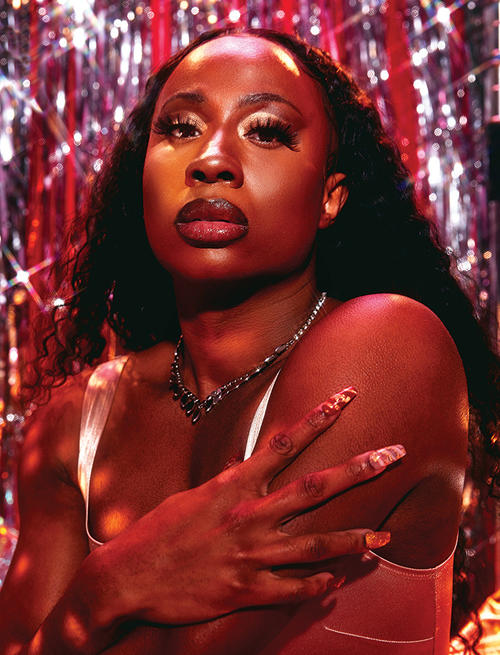Asanni Armon ’17 Creates Mutual Aid for the Black Transgender Community

The idea of the nonprofit For The Gworls came about when Asanni Armon ’17 was in the middle of a therapy session in June 2019. Armon, whose pronouns are she/her and they/them, had been discussing the weight they felt over a friend’s coming eviction, and were pulled to help but didn’t know how. Armon would have opened their own doors, but they were living in a three-bedroom apartment with two other roommates — there was simply no room.
“The thought just kind of came to me to host a [fundraising] party,” says Armon. That day they enlisted the help of friends to create a flyer to advertise the event, craft a playlist, and secure a rooftop location.
They released the flyer the next day and by that evening raised half of their goal. By the time the party rolled around on July 4, they had raised nearly $2,000, which was well over the needed amount. Armon gave the donation to the friends in need and was approached by another friend who suggested that Armon continue with the benefit.
“I was very hesitant at first because I was starting a new job. I didn’t know if I could commit to that, but at that part of my life, I was partying every weekend,” Armon says. “So, I was like I can at least dedicate one week out of the month to give back.”
Out of that, For The Gworls (FTG) was born as a vehicle to raise money to help Black transgender people pay for rent and gender-affirming surgeries. Armon, a Black transgender woman, says they were inspired by the idea of “rent parties” developed in the Black community a century ago during the Harlem Renaissance. The goal was to collectively combat inflation and discrimination by hosting gatherings where a small fee was collected.
It brought Armon back to Princeton classes on this topic. “I was reading that Langston Hughes would not only just go to these parties to help people pay their rent, but he was also writing about them and he was [believed to be] queer. So all of this is in the lineage of the work that’s always been done by us and for us, to make sure we’re OK,” Armon says.
COVID forced a pause in the monthly events, but the group continued raising money and posting to spread awareness, which helped the brand stay afloat. “George Floyd’s murder pushed everybody who wasn’t Black to try to fake this sense of ‘we stand for Black people’ kind of thing, so a lot of our GoFundMe’s and crowdfunding needs were being met,” Armon says. Following a viral crowdfunding post during this time, the group has raised and donated around $2 million total to date, Armon says. Armon resumed the parties in 2021 and expanded opportunities to donate.
Armon understands the difficulty of finding safe spaces, and says they even struggled with this at Princeton. Armon was a member of the Black Justice League, the student group that pushed Princeton to take accountability and address the racial climate on campus. These experiences shaped Armon’s thinking about taking a stand and helping the community.
“That [experience] is what pushed me into the work of organizing in the first place. Being in a predominantly white and super-conservative space really radicalized me in more ways than one,” Armon says. Many students and alumni have donated and hosted drag shows to raise money for FTG. Armon adds, “We’ve grown tremendously…. I’m so grateful for the work we’ve done.”
Nominate Other Inspiring Alumni
This story is part of a new series highlighting the stories of alumni doing inspiring work. To nominate others, please email your ideas to paw@princeton.edu.









No responses yet